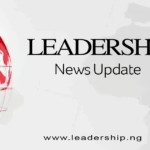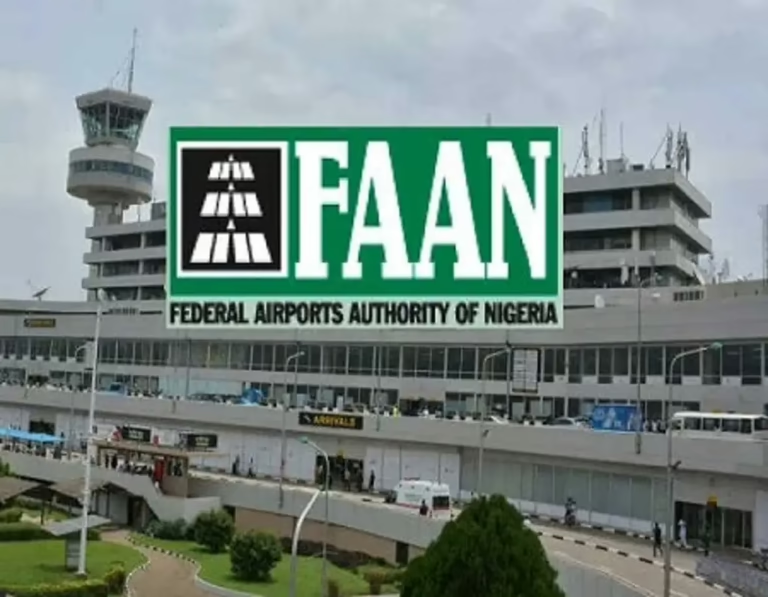Domestic airlines in Nigeria have expressed serious concerns regarding the Federal Airports Authority of Nigeria’s (FAAN) apparent neglect in securing adequate insurance coverage for airports across the country.
At the 5th CHINET Aviacargo Conference held during the 21st Akwaaba African Travel Market in Lagos, Edward Boyo, founder and CEO of Overland Airways, highlighted the negative repercussions this lack of insurance has had on local airline operations.
Boyo called on the National Insurance Commission (NAICOM) to collaborate with relevant stakeholders to guarantee that all Nigerian airports are comprehensively insured. He emphasized that deteriorating airport infrastructure has led to considerable aircraft damage, with airlines shouldering the financial consequences.
He pointed out specific challenges such as insufficient wildlife management and runway wear and tear, which have contributed to aircraft harm. “These facilities remain uninsured,” Boyo stated, urging the government to fulfill its obligations.
Attempts to obtain comments from FAAN’s Director of Public Affairs and Consumer Protection, Henry Agbebire, were unsuccessful as he promised a callback that was not received by the time of reporting.
Contrasting these claims, Capt. Hamisu Yadudu, the immediate past managing director of FAAN, affirmed that all FAAN-operated airports are fully insured and that premiums were up to date upon his departure in 2023. He further confirmed that subsequent payments have continued, maintaining active insurance coverage.
“I can assure you that all FAAN airports are insured. Payments were current when I left, and after your inquiry, I verified that FAAN continues to meet its obligations. The concern lies more with state-operated airports,” Yadudu clarified.
In response, Olusegun Ayo Omosehin, NAICOM’s commissioner for insurance and CEO, expressed the commission’s readiness to engage with authorities to resolve the matter. He underscored that compulsory insurance exists primarily to safeguard the public and that NAICOM is empowered to enforce such mandates.
Represented by Deputy Commissioner Usman Jankara Jimada, Omosehin explained that Nigeria’s insurance sector may lack the capacity to fully reinsure certain risks domestically. Therefore, NAICOM requires insurers to exhaust local capacity before seeking coverage abroad, ensuring prudent underwriting practices.
“Insurers operate to generate profits, not losses. Sound underwriting means accurately pricing risks so claims can be honored. It’s illogical to pay a minimal premium for a high-value risk and then be unable to cover losses,” Omosehin elaborated.
He added that NAICOM has eliminated ambiguities in aviation insurance contracts, mandating clear terms and conditions so policyholders fully understand their coverage.
Bimbo Onakomaiya, managing director of PeakThrust Insurance Brokers Limited, provided additional context, noting Nigeria has approximately 370 registered aircraft, including 147 military and around 170 civilian planes used for commercial and private purposes.
She also mentioned the existence of about 31 airports, 92 airstreams, and 13 scheduled commercial operators, emphasizing that such a sizable fleet necessitates robust insurance support.
“Collaboration with NAICOM is essential. Strong partnerships between the aviation and insurance sectors will yield better outcomes. Without a solid foundation in both industries, synergy is unattainable,” Onakomaiya stated.
She highlighted ongoing improvements driven by the Nigerian Insurance Industry Reform Act 2025 (NIIRA 2025), which is strengthening the insurance landscape.
Onakomaiya described Nigeria as a developing economy heavily dependent on trade, logistics, and transportation, with aviation playing a critical role. She stressed that insurers must foster business confidence by effectively managing risks.
“Surprisingly, aviation faces challenges like piracy. It’s crucial for the insurance and aviation sectors to unite. Human capital is also vital-covering personnel through group life and accident insurance is necessary,” she explained.
“Such emerging collaborations will boost safety standards and enhance Nigeria’s competitiveness in the global aviation arena,” she concluded.






















